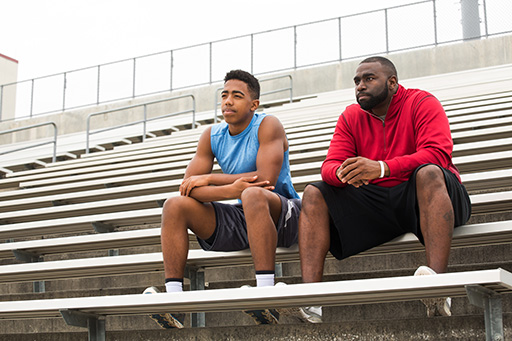5 Planning a first one-to-one meeting
In the following activity you listen to Alex, who you met at the start of Session 1, and hear how he has refined his approach to meeting a new mentee for the first time.
Since 2013, Alex has been involved in a mentoring programme which is focused on supporting grassroots voluntary coaches. During this time Alex has worked with over 20 coaches on an individual basis.
Activity 5 Meeting a mentee for the first time
In this activity, listen to the approach Alex adopts to the initial meeting with a new mentee.
Was there anything that surprised you with this approach? How well might this approach work with Stewart from the motor-racing team?
Transcript: Audio 3
Discussion
This might seem a very calculating way of initiating the relationship – Alex plans to act out what the sociologist Erving Goffman would describe as a performance, that is managing impressions and influencing the relationship building process.
This approach may well work with Stewart and is similar to that suggested in Activity 2. You may now think that to really engage with Stewart constructively requires initiating the relationship away from the race track and away from the heat of competition.
If you deliver coaching qualification courses, you will find it valuable to see how Alex adapts his welcome for a course-related learning environment.
Box 1 Alex adapts his welcome strategy to a more formal course-related situation
I make sure I arrive 45 minutes before the start time of the course – you can always guarantee that one of the coaches on the course will arrive very early. Initially I start by playing a video of a football match as a kind of welcoming gesture. As this plays I organise the furniture in the room and put up some posters to make the room look more like a coaching environment. I purposely leave the door open. I do this as I want the coaches to walk through an open door. As the coaches arrive, I greet them and give them a form to complete. This form has four boxes with a question in each box, these questions are:
- What do you want to learn on this course?
- Where and what team are you coaching at present?
- How do you think you are going to learn on this course?
- What is your favourite sporting moment and why?
This serves as an activity that the coaches can complete and share with each other while we wait for everybody to arrive and deal with any initial administrative issues. Once everybody, or almost everybody, has arrived we start by writing each coach’s favourite sporting moment on a ‘post-it’ note and posting them to a wall where I then select one at a time and ask the coach it belongs too for a bit more information about the moment they have chosen. This gives me time to listen to each individual and start to get to know them as well as building the dynamics of the group. It is also a fun and non-threatening activity, no personal information needs to be declared and as a consequence the first activity is purposely designed to underpin the creation of an emotionally safe environment where each individual only has to disclose what they feel comfortable with.
Having planned to make a positive first impression you now consider different aspects that will help to evolve and sustain a learning relationship, particularly those around providing support and challenge.

